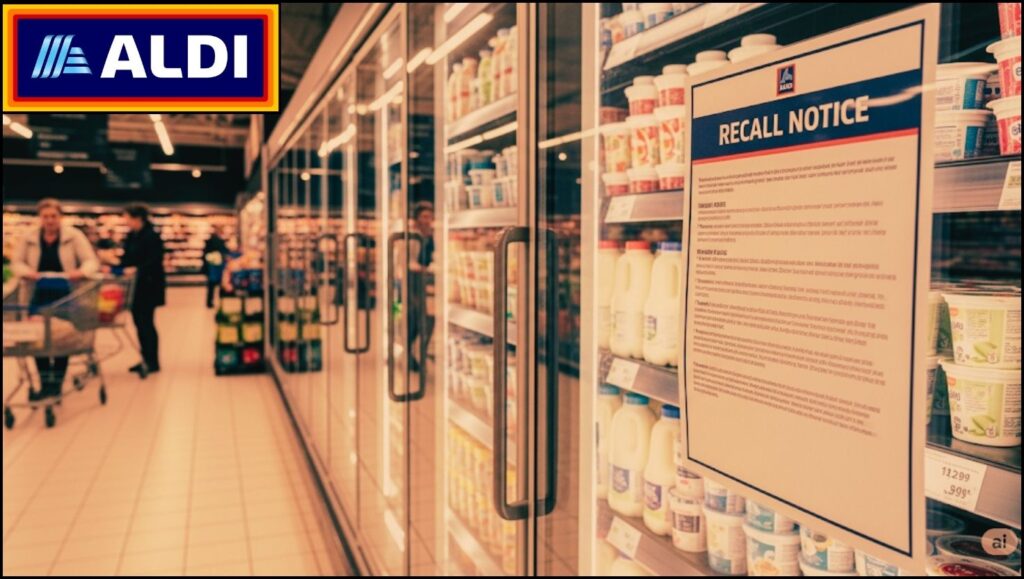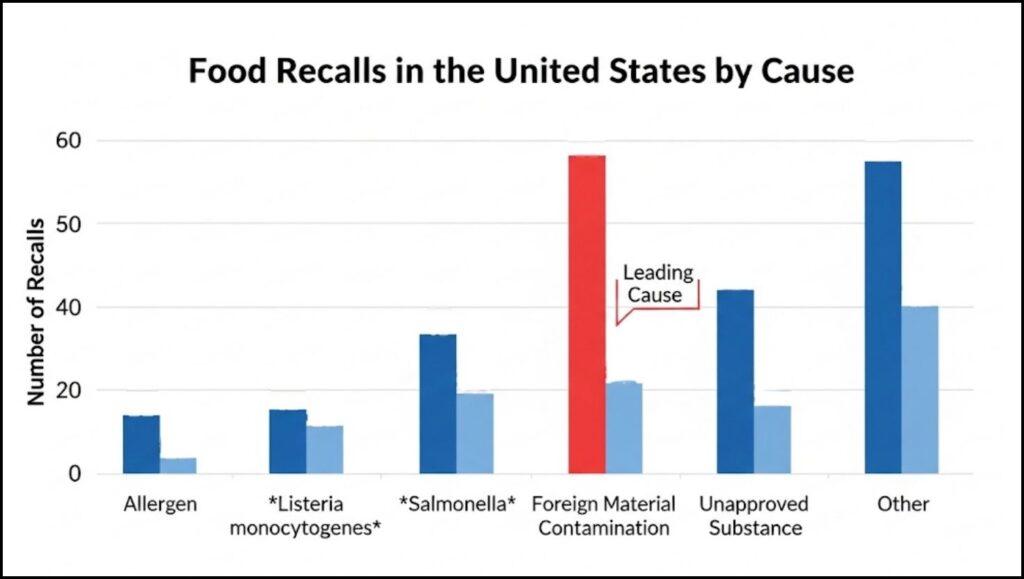A nationwide Aldi recall is underway for a popular refrigerated dip after the discovery of plastic fragments in the product. The U.S. Food and Drug Administration (FDA) announced the voluntary recall, initiated by the manufacturer, citing potential health risks from consuming the contaminated snack. Consumers are advised to check their refrigerators for the affected item and either discard it or return it to the store for a full refund.

Key Facts at a Glance
| Key Fact | Detail/Statistic |
| Recalled Product | Park Street Deli Cinnamon Bun Dessert Dip |
| Reason for Recall | Potential presence of plastic fragments |
| Affected Units | Over 19,000 seven-ounce plastic tubs |
| Recall Classification | Class II, indicating temporary or medically reversible health consequences are remote |
| Consumer Action | Do not eat. Discard or return to Aldi for a refund. |
The Scope of the Aldi Recall and Potential Risks
The voluntary Aldi recall specifically targets the Park Street Deli Cinnamon Bun Dessert Dip, a product sold in a seven-ounce plastic tub. According to a statement issued by the FDA on August 8, the recall was initiated by Superior Foods Company, the manufacturer. The agency’s report specifies that 19,368 units are affected. The contamination was discovered during a routine quality assurance check, prompting immediate action from the company.
This recall is classified as a Class II recall by the FDA. This classification is assigned when a product’s use or exposure “may cause temporary or medically reversible adverse health consequences, or where the probability of serious adverse health consequences is remote,” according to the FDA’s guidelines. While the risk of serious injury is considered low, the presence of foreign material like plastic fragments poses potential hazards. These include choking, cuts to the mouth or digestive tract, and internal injuries.
The affected products can be identified by the following information printed on the packaging:
- UPC: 4061462440151
- Lot Number: 16225
- Sell-By Date: 11-08-25
The recall affects product distributed to Aldi stores nationwide. The company has stated that the product has been removed from shelves and is no longer available for purchase.
Why Do Food Recalls Occur? The Role of Foreign Material Contamination
Incidents involving foreign materials in food products are a significant and recurring challenge for the food industry. Contamination can be introduced at various stages, from raw material processing to packaging. Plastic fragments are a common type of contamination, often resulting from equipment malfunctions or a breakdown of the production line.
Dr. Eleanor Vance, a food safety expert and professor at a major public university, explains the typical root causes. “Plastic contamination often traces back to a mechanical failure, such as a broken conveyor belt or a piece of machinery degrading over time,” she said in a recent interview. “The fragments can be small and difficult to detect with standard quality control measures, which is why a robust system of preventive maintenance is crucial. Even a tiny piece of plastic can be a major choking hazard, especially for children or the elderly.”

The FDA mandates that food manufacturers implement Hazard Analysis and Risk-Based Preventive Controls (HARPC) to identify and mitigate potential hazards. These plans are designed to preemptively address risks like foreign material contamination before a product reaches consumers. The fact that the manufacturer initiated this as a voluntary recall suggests that these internal controls or a customer complaint brought the issue to light.
Consumer Response and Legal Recourse
Aldi has issued clear instructions for customers who purchased the recalled product. Consumers are advised not to eat the dessert dip. Instead, they can return the item to any Aldi store for a full refund. The company’s official website states that a receipt is not required to receive the refund.
While no illnesses or injuries have been reported to the FDA or the company as of this report, consumer advocates emphasize the importance of awareness. “The first step for any consumer is to check their pantry and refrigerator against the recall notice,” said Sarah Jenkins, a representative for a consumer protection group. “Even if you have already eaten a portion of the product and feel fine, it’s essential to dispose of the rest immediately. The risk is not worth it.”
For those who have consumed a recalled product and are experiencing adverse health effects, experts recommend contacting a healthcare provider immediately. Consumers may also report adverse events to the FDA’s MedWatch program.
A Broader Look at Recent Food Safety Incidents
This latest incident is part of a broader trend of food safety recalls in recent years. Data from the FDA and the U.S. Department of Agriculture (USDA) show that recalls for foreign material contamination, including plastic and metal, have been a persistent issue. The volume of recalls has fluctuated, but the presence of foreign objects remains a leading cause of product withdrawals.
The food industry and regulatory bodies are continuously working to improve safety protocols. Innovations in food processing, such as advanced X-ray and metal detection systems, are becoming more common, but they are not infallible. The responsibility for consumer safety is a shared one, involving producers, retailers, and the public.
The recall of the Park Street Deli dip serves as a reminder of the vigilance required at every stage of the food supply chain to ensure product integrity and public health. Aldi and its suppliers are expected to conduct a thorough investigation to identify the source of the contamination and prevent similar incidents in the future.
Target Cookies Recall in 20 States Over Alarming Contamination
